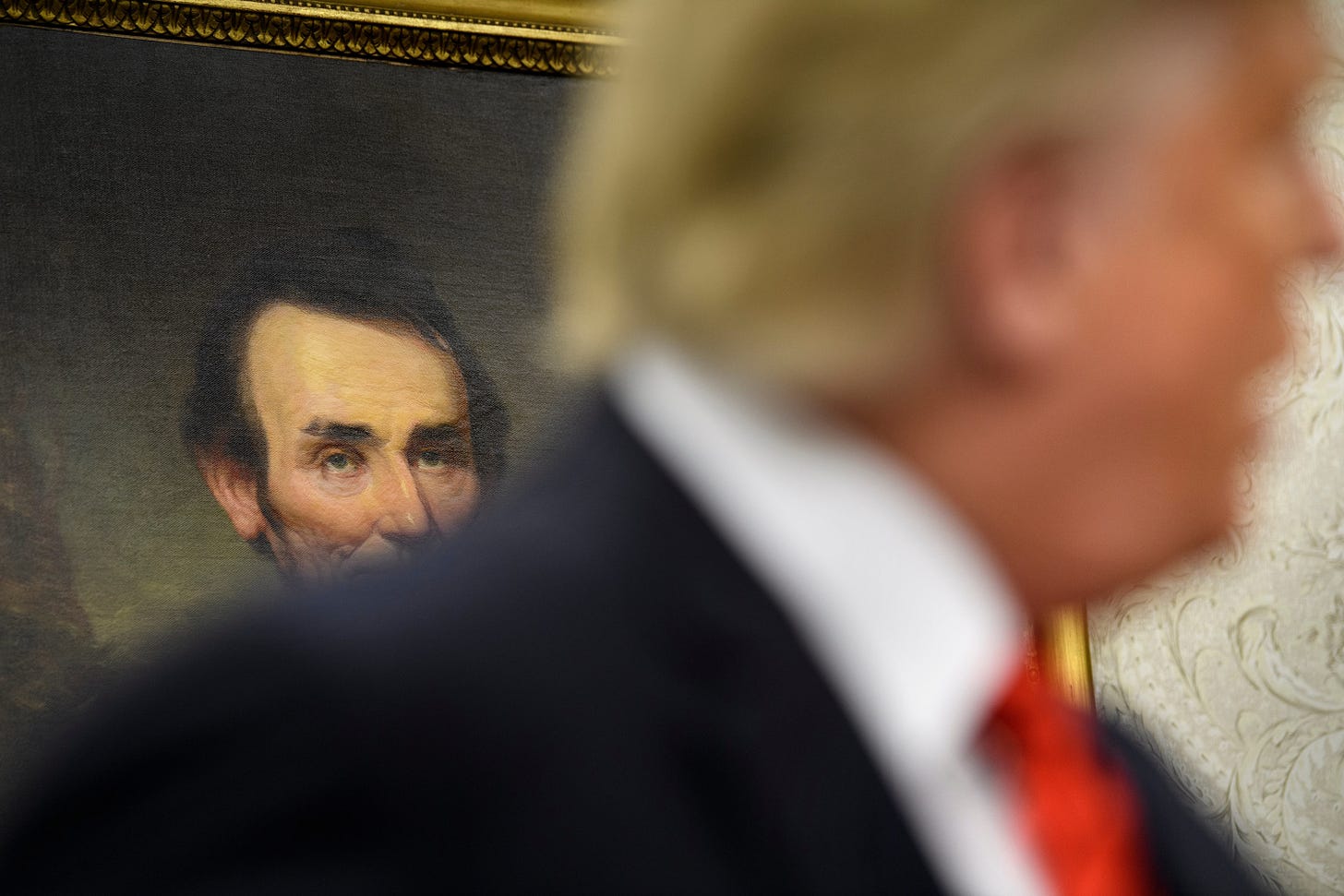
In 1864, our republic sat on the precipice of disaster. The Union armies were still fighting with the Confederates. Although the war turned in the North’s favor by the time of the election, it didn’t look good for Lincoln in early 1864. In fact, he contemplated and even made plans for his defeat. His opponent, George B. McClellan, made it clear that he would end the war and end the Union by letting the South secede if he won the election. In other words, the fate of the Union itself hung in the balance.
During the four years of his presidency, Lincoln had never been reluctant to use all of the constitutional and “extra-constitutional,” or, depending on who you ask, unconstitutional, powers at his disposal. He interpreted his constitutional oath—to preserve, protect, and defend the Constitution—as giving him all the authority that was necessary to preserve the Union. This included taking actions, otherwise illegal, such as suspending the writ of habeas corpus. He even ignored a federal judge who had ordered him to release those rounded up after the writ’s suspension.
All of which is to say, Lincoln was far from a blushing violet in his understanding of presidential power. And yet, despite his robust belief in presidential power to do all kinds of things no president before him had claimed, he never even considered postponing the election of 1864. Thus, the most momentous election in American history proceeded to take place in the midst of a war for the very existence of the Union.
Why didn’t Lincoln seek at least to postpone the election until the war’s conclusion? Why not suggest that a fair election was impossible and that his overarching responsibility to save the Union demanded it be postponed?
Because despite all of his rhetoric about his robust constitutional authorities to do those things necessary to win the war, those arguments ultimately had to stop at the point of constitutional processes. His constitutional oath only permitted him so much power because Congress, through impeachment, and the people, through reelection, had the ability to hold him responsible for its use and misuse. For him to postpone or cancel the election would be to deny the process by which he could be held responsible.
As long as he can be held responsible, the president remains within the Constitution’s structure. His other potentially unconstitutional actions aren’t dangerous to the republic itself as long as he can be taken out of power. His unconstitutional actions aren’t dangerous so long as they remain confined to the extraordinary circumstances of a civil war. The danger comes if he abrogates the principle of responsibility that tethers him to the Constitution and thus paves the way for a limitless dictatorship based on some vague principle of “necessity.” If he were to have postponed or suspended the election because it was necessary to preserve the Union, then he would essentially be destroying the principle that makes the Union worth saving.
These processes are more important than anything else in the document because they insure that our politics remains essentially political and not a mere question of power. For Lincoln, one of the biggest problems with southern secession is that they resorted from “ballots to bullets.” To postpone or cancel an election would be a similar act of power that departs from politics. The Constitution establishes certain delineations and rules such that politics can take place without resorting to mere acts of power. It makes possible what Hamilton called “reflection and choice” rather than mere “accident and force.”
For this reason, any attempt to postpone the election would be the most dangerous thing Trump has done. The founders recognized that republics of the past had failed because they didn’t have sufficiently strong institutions with regular processes. More than anything else, the Constitution is about creating various processes for establishing political authority. Presidents are elected for four years through the electoral college. Congress is specifically assigned the power to “determine the Time of chusing [sic] the Electors, and the Day on which they shall give their Votes; which Day shall be the same throughout the United States.” These powers and processes are permanent and not susceptible to debate. There is not and ought not be room for varying interpretations of these constitutional processes. No one doubts whether presidents can serve for more than four years or, until now, whether presidents can postpone an election.
The founders were wise enough to recognize that a republic could only survive its roiling politics if its institutions placed certain questions beyond the pale. In 1800, Adams and Jefferson might have disagreed vociferously with one another politically and even personally, but they didn’t extend their politics into a refusal to recognize the legitimacy of the election. As long as we have these processes, we can have political debates. To postpone the election isn't a matter for political debate. It's a strongman tactic that's aiming to shut down debate. As a constitutional republic that has sustained itself through constitutional processes in a way that no previous republic has ever sustained itself, we must stand against this without reservation.


